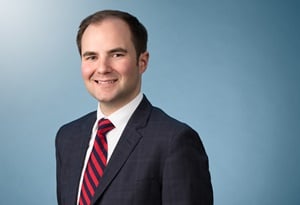NLRB Office of General Counsel: Franchisors May Be Liable for Franchisees' Employment Practices
In a decision with potentially far-reaching consequences for the franchise industry, the National Labor Relations Board's (NLRB) Office of General Counsel decided on July 29, 2014, that it will require McDonald's USA, LLC (along with the relevant franchisees) to answer unfair labor charges concerning the franchisees' employees. In a brief press release—with no accompanying opinion or other legal explanation—the Office of General Counsel said that so far it had determined that 43 cases filed on behalf of franchisee employees "have merit" and that, "if the parties are unable to reach settlement," the McDonald's franchisor "will be named as a respondent" under the theory that it is a "joint employer."
Importantly, the decision is not a final decision of the five-member NLRB in Washington, D.C. Rather, it authorizes directors in the various NLRB regions across the country to file administrative complaints naming the franchisor as a joint employer. The complaints' merits will be decided by administrative law judges and then the five-member board. NLRB decisions may be appealed to federal courts.
Threat to the Franchising Business Model
Even so, the decision marks a significant first victory in an effort—widely supported by labor unions—to upend the franchise model by holding franchisors responsible for the employment practices of their franchisees. Historically, courts examining whether a franchisor is a "joint employer" of its franchisees' employees have looked to whether the franchisor exercises control over the franchisees' employment-related decisions. For instance, the courts examine whether the franchisor is involved in the hiring, firing or discipline of franchisee employees, payment of their wages, or setting their work schedules. Because franchisees operate as independent businesses, franchisors rarely possess these types of controls.
Although not clear, the Office of General Counsel's decision to proceed with lawsuits against the McDonald's franchisor suggests it considers other types of controls, such as franchisees' obligations to use a franchisor's trademarks or operate under a franchisor-developed operations manual—in other words, the very things that make franchising a desirable business model—enough to make franchisors liable for franchisees' actions. The NLRB is currently considering what standards apply when determining whether a joint employer relationship exists in another non-franchise case, Browning-Ferris Industries of California, Inc., but it is not clear whether that decision will clarify that the types of controls inherent in the franchise business model do not automatically create employment relationships. And yesterday's Office of General Counsel decision is not an encouraging sign.
Next Steps for the Franchising Community
Regardless of the outcome before the NLRB, the importance of preserving the viability of the franchising model ensures that through appeals, legislation or other action, the NLRB will not have the last word on this issue. That only underscores the need for the broader franchising community to seize upon the publicity surrounding the Office of General Counsel's actions to educate governmental agencies, legislators, the public and other stakeholders on the importance of franchising to our economy. Faegre Baker Daniels will continue to monitor those efforts and keep franchisors posted on developments.


